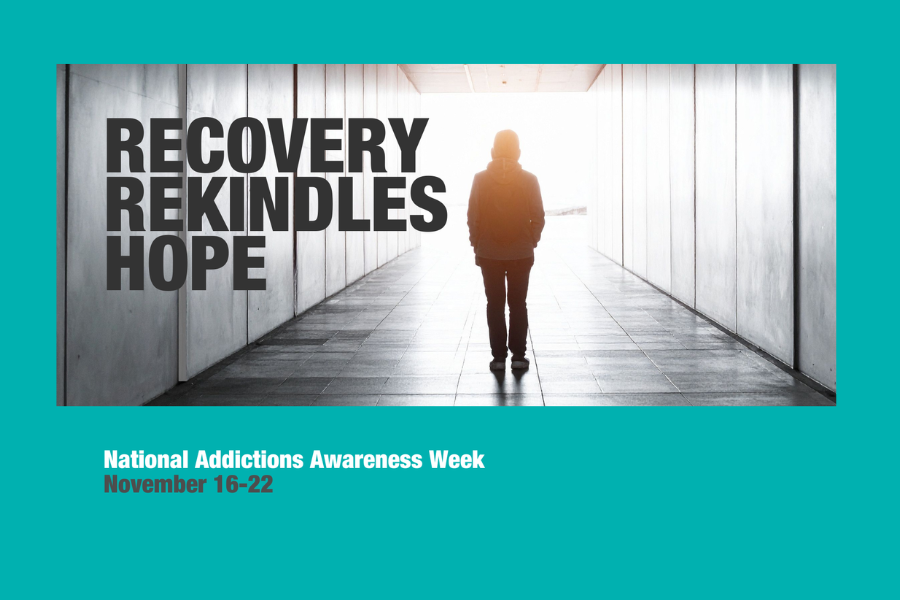When we hear the word addiction, most of us think of drugs (substances), including alcohol. But addiction can also form with activities like gambling, gaming, shopping, eating, sex, social media, exercise, and even work. These are called behavioural, or process, addictions. When a person’s substance use or engagement in other behaviour(s) continues and becomes compulsive (a strong, usually irresistible, impulse) despite negative consequences, they are likely struggling with an addiction.
No one chooses to develop an addiction. A substance or behaviour is often used to help meet core emotional needs that someone doesn’t feel able to or know how to meet in other ways. There’s substantial evidence linking trauma with addiction, so it’s more relevant to ask, “why the pain?” instead of “why the addiction?”[1]
Whether it’s drugs, gambling, pornography, or something else, the same processes are unfolding in the brain and body.
At its core, addiction emerges when something that felt good starts to cause problems. The substance use or behaviour becomes something we need to feel okay, even when it causes harm. It’s both physical and psychological. So how do addictions develop?
What happens in our brain when we do something pleasurable?
Addiction is influenced by changes in the brain’s motivation and reward systems. Two natural signalling systems play a key role in reward and motivation: the endocannabinoid and the opioid systems. When these signalling systems are repeatedly switched on, as happens with the use of many drugs, our brain’s motivation and reward systems actually change[2].
Part of this change relates the release of dopamine. Dopamine, a neurotransmitter (chemical messenger) and hormone, creates a calming and relaxing effect and plays a role in activating pleasure hotspots in the brain. And our brains are hard-wired to do things that release dopamine.
Over time, with continued substance use or engaging in repeated behaviour, we can become physically, mentally, and/or behaviourally adapted to want more of the rewards that are triggered by our use or action. We crave the pleasurable feeling that we experienced which drives a desire to repeat the behaviour. Over time, our brain develops a tolerance to the substance or behaviour, requiring more of it to achieve the same reward state. Some substances and activities create such extreme rewards they lead to changes in our brain’s neuro pathways, leading people to prioritize reward-seeking above all else[3].
Our rewired brain makes it hard to stop, even when we want to
For someone with a substance use disorder, these neuro pathway changes can make the heightened good feelings experienced with using a substance more important than meeting other physiological needs like eating and sleeping3. The decision-making and impulse control parts of the brain become impaired, making it hard for someone to stop using a substance, no matter how much they want to3.
The same brain reward system is responsible for other addictions, too. Addictions to activities also result in a person giving priority to the activity over other things, and continuing, even increasing the activity, despite negative consequences[4].
Regardless of the particular addiction, the impacts are serious. Because addictions are heavily stigmatized in society, people often hide their behaviour, feel guilt or shame, or struggle to focus on other parts of life. And stigma and shame prevent people getting the mental health support they need to recover from an addiction.
Anchoring hope
The good news is that all types of addiction are treatable. Recovery can include counselling, peer support, support groups, medication, or changes in daily habits. Recovery must address the underlying reasons that a person turned to a substance or activity in the first place. What matters most is understanding that addiction is a health issue and people living with addiction need to be supported to address the underlying problems, pain, or challenges.
Knowing the science behind addiction, recognizing that it comes in many forms, and understanding that it can affect anyone helps us respond with empathy, not judgment. Whether someone is struggling with a substance or a behaviour, they deserve compassion, care, and support on their path to recovery.
Whether you’re struggling with an addiction or supporting someone who is, there’s help available.
- Contact us to find out what programs and services are available to support you or a loved one struggling with addiction. You can also contact our Service Navigation Hub at 204-775-6442.
- Don’t use drugs alone. Contact NORS. The National Overdose Response service available is confidential, anonymous, judgement free, and available everyday around the clock.
- Find substance use programs and services on Health Canada’s website.
[1] Levin, Y., Lev Bar-Or, R., Forer, R., Vaserman, M., Kor, A., & Lev-Ran, S. (2021). The association between type of trauma, level of exposure and addiction. Addictive behaviors, 118, 106889. https://doi.org/10.1016/j.addbeh.2021.106889
[2] Manzanares, J., Cabañero, D., Puente, N., García-Gutiérrez, M.S., Grandes, P., and Maldonado, R. (2018). Role of the endocannabinoid system in drug addiction. Biochemical Pharmacology,157. https://doi.org/10.1016/j.bcp.2018.09.013
[3] Canadian Centre on Substance Use and Addiction. (2021). Insights on substance use: Understanding the science on substance use disorder. Overcoming Stigma: Online Learning. https://www.ccsa.ca/module/stigma-learning-module-2-en/#/
[4] Hunt, A., Merola, G.P., Carpenter, T. & Jaeggi, A.V. (2024). Evolutionary perspectives on substance and behavioural addictions: Distinct and shared pathways to understanding, prediction and prevention. Neuroscience & Biobehavioral Reviews, 159(). https://doi.org/10.1016/j.neubiorev.2024.105603

